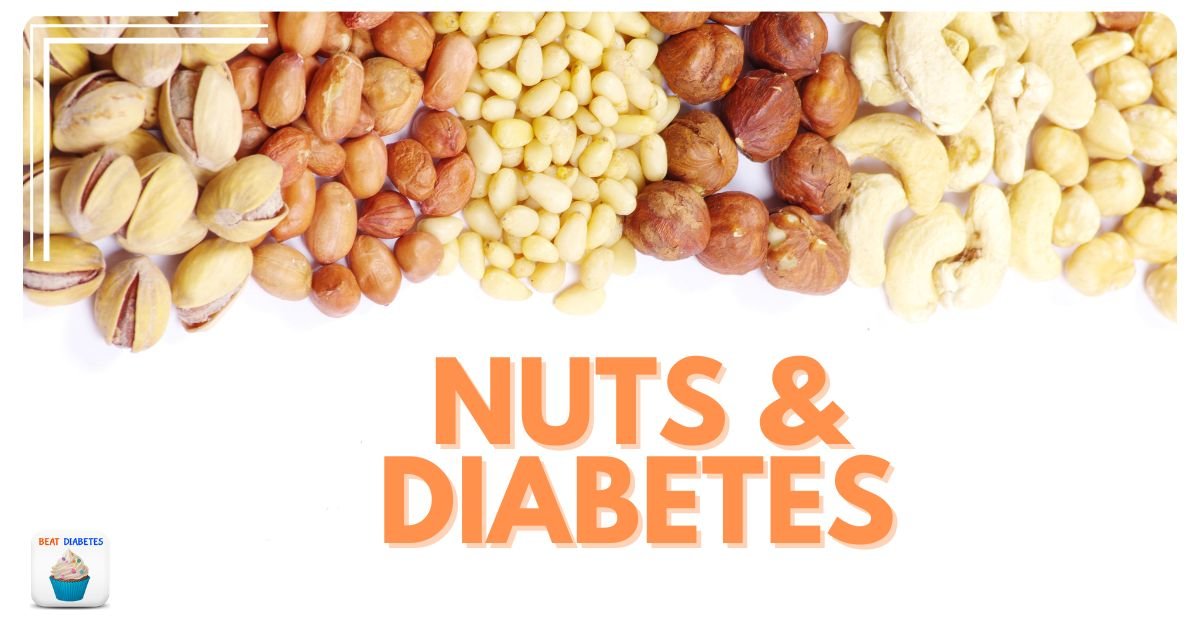Last Updated on June 12, 2023 by Dr Sharon Baisil MD
Diabetes management requires careful attention to diet and lifestyle choices, as certain foods can significantly impact glucose regulation. Nuts are commonly touted as a healthy snack option due to their high nutrient content, but for diabetics, choosing the right type of nuts is crucial.
While some nuts may have beneficial effects on glucose control, others could be detrimental to diabetic individuals’ health by causing spikes in blood sugar levels. This article will discuss five types of nuts that diabetics should avoid consuming and explore the scientific evidence behind their negative effects on diabetes management.
Are Nuts Bad for Individuals with Diabetes?
Studies have consistently shown that adding nuts to the diet of individuals with diabetes is not bad for their blood sugar management. Instead, it can help improve overall diet quality and positively affect blood sugar levels, thus reducing the risk of heart disease.
The healthy fats in nuts can protect your heart, especially important for individuals with type 2 diabetes who have a higher risk of heart disease.
Nuts contain heart-healthy monounsaturated and polyunsaturated fats that can lower LDL (‘bad’) cholesterol and raise HDL (‘good’) cholesterol, preventing plaque buildup in arteries.
Studies also demonstrate that almonds and pistachios when consumed with carbohydrate-rich foods can slow down the blood sugar response.
In addition, nuts are rich in protein, fiber, vitamins, minerals, and antioxidants – all of which make them a great choice for diabetics looking to maintain their health.
5 Best Nuts for Diabetes
Nuts are an important part of a healthful diet for individuals with diabetes.
Walnuts, pistachios, almonds, cashews, and peanuts all have benefits that can help people manage their blood sugar levels.
Walnut
Walnuts are a healthful nut for those with diabetes, as they may reduce the risk of developing type 2 diabetes and have been observed to have minimal impact on body weight or composition. Studies suggest that walnuts can positively affect cholesterol levels and heart health.
Walnuts contain linoleic acid, which is an essential fatty acid that helps maintain healthy blood glucose levels. Eating walnuts regularly has been linked to lower LDL cholesterol levels and higher HDL cholesterol levels, both of which are beneficial for people with type 2 diabetes.
Additionally, eating walnuts has been associated with improved inflammatory markers related to heart health in people with type 2 diabetes.
Pistachios
Pistachios are a rich source of fiber, beneficial fats, and essential minerals, making them an ideal choice for people with diabetes.
Pistachios have been found to reduce insulin resistance, improve diabetes management, and lower the glycemic load.
Furthermore, studies have shown that nut consumption is associated with a reduced risk of developing certain allergies.
However, because pistachios are high in calories and fat content they should be eaten in moderation as part of a well-balanced diet to ensure that blood sugar levels remain stable.
Almonds
Almonds are known to have a positive effect on blood sugar levels and reduce the risk of heart disease in people with diabetes. This is due to their high content of fiber, protein, and monounsaturated fats, which help regulate insulin sensitivity.
Studies suggest that nut consumption, particularly almonds, can help control blood glucose levels and provide other health benefits for those living with the condition. Almonds may also reduce the risk of developing type 2 diabetes by improving insulin resistance.
As part of a healthful diet for diabetics, almonds can be easily incorporated as a snack or an ingredient in meals. A typical serving size of almonds should not exceed one-fourth cup or a small handful per day.
Cashew
Cashews are a nutrient-dense food that can provide numerous health benefits to people with diabetes. They contain a range of essential vitamins and minerals, such as magnesium, zinc, copper, vitamins E, and K, as well as healthy fats and plant-based proteins.
This combination of nutrients helps to improve heart health in people with diabetes by providing satiation and keeping blood sugar levels stable. Studies have shown that cashews can reduce the ratio of HDL to LDL cholesterol and lower the risk of heart disease.
Additionally, due to their nutritional value, cashews may help weight management when eaten in moderation as part of a balanced diet.
Peanuts
Peanuts are an excellent source of nutrition and can be beneficial for people with diabetes when incorporated into a healthful diet. They contain a low-carbohydrate, nutrient profile that is rich in essential vitamins, minerals, and omega fatty acids, which provide many nutritional benefits.
Moreover, peanuts have been linked to weight management, since they can help reduce the risk of developing diabetes and do not have a major impact on body weight or composition.
Additionally, peanuts are also high in protein and fiber which can help with weight loss and may reduce the risk of heart disease.
How Many Nuts Can Diabetics Eat Per Day
Recent studies have shown that incorporating nuts into the diets of people with diabetes can be highly beneficial, as long as they are consumed in moderation.
According to research conducted by the American Diabetes Association, consuming 1-2 ounces or a small handful of nuts per day can positively affect blood sugar levels and reduce the risk of heart disease in individuals with type 2 diabetes.
It is important for diabetics to limit their intake of nuts to one ounce per day to avoid exceeding their daily carbohydrate and calorie allowance.
Consuming too many nuts can lead to an increase in blood glucose levels, which can cause further complications for those living with diabetes.
However, when consumed in moderation, nuts such as almonds, walnuts, pistachios, hazelnuts, and Brazil nuts provide essential nutrients like protein and healthy fats that can help stabilize blood sugar levels throughout the day.
Key Takeaways
- Nuts are actually beneficial for people with diabetes and provide a range of health benefits.
- Some nuts are better than others for people with diabetes, with almonds positively affecting blood sugar and reducing the risk of heart disease, walnuts potentially reducing the risk of developing diabetes, cashews improving the ratio of HDL to LDL cholesterol and lowering the risk of heart disease, pistachios containing healthful amounts of fiber and beneficial fats and improving heart health, and peanuts being a good source of protein and fiber, helping with weight loss, and potentially reducing the risk of heart disease.
- A healthful diet that includes nuts can help manage blood sugar levels and reduce the risk of complications for people with diabetes, with lifestyle playing a major role in type 2 diabetes and diet being a significant factor.
- People with diabetes should avoid salted varieties of nuts and stick to a small handful or one-fourth of a cup as a serving size. The American Diabetes Association lists nuts as a beneficial food for people with diabetes.
Frequently Asked Questions
References
- Consumption of Nuts and Seeds and Health Outcomes Including Cardiovascular Disease, Diabetes and Metabolic Disease, Cancer, and Mortality
- Nuts and seeds consumption and risk of cardiovascular disease, type 2 diabetes, and their risk factors: a systematic review and meta-analysis
- American Heart Association





